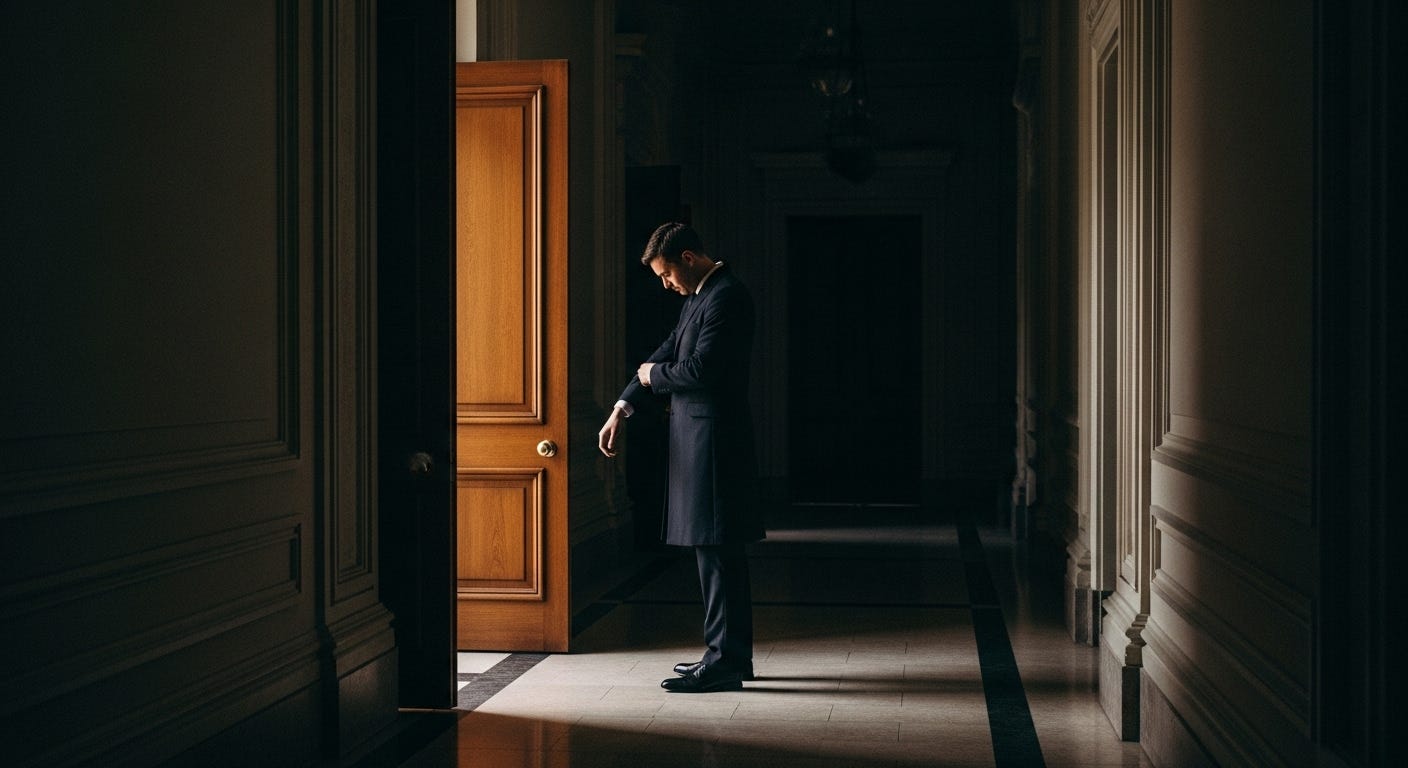Every Friday, I return to an earlier piece of writing in a series I call Flashback Fridays. Not reprints, but re-entries — the past offers a fragment, and I follow it to see what else it might hold.
This week’s story began with a poem from 2021, No More Talk. That poem was about letting go of what couldn’t be, and turning toward what still might. Here I’ve stepped into the same theme from another angle — a wedding, a private toast, a hallway quiet. What remains is a story about release, resilience, and choosing what to keep.
What I Choose to Keep
The reception hall sat at the end of a gravel drive lined with bare maples, bulbs strung along the branches humming faintly in the November cold. I let the engine tick down before opening the door. Through the windshield, I saw silhouettes moving past the windows—coats shrugged off, laughter rising, bass leaking through the bricks in a steady thrum.
I told myself I would stay an hour. Long enough to be courteous. Short enough not to confuse anyone, least of all myself.
The cold met me as I stepped out. Gravel shifted underfoot, sharp against the silence. At the doors, the music thickened—voices, applause. Someone ahead of me pulled the door wide, and heat spilled out like breath from another world.
The foyer smelled of rosemary and wax, wine already opened. Candles guttered, wax pooling into ridges. A caterer passed with a tray of glasses; I took one. Easier to hold something than to decide what to do with my hands.
And then there she was.
The gown was simple, the kind that trusted its wearer. Her hand rested on his sleeve, her smile open. For a moment, I saw her as I had in lamplight years ago—hair falling across her face, a sentence left unfinished between us.
I let it pass. The mind offers old film; you get to choose whether to thread it.
Glasses chimed. The room gathered.
Her father spoke first, voice rough with feeling. He told how she once limped through a hike with a blister, how she coaxed a smile from a weary cashier. He ended with the hope she had found someone who saw her as he did. Applause rose like a wave.
I raised my glass. No one noticed.
The maid of honor recalled late-night calls, napkin notes. The words passed quickly.
The groom’s toast was steady. Love, he said, had stayed when he learned to recognize it.
Something shifted in me. Not pain. Recognition.
A memory rose: a kitchen table, afternoon sun falling across the wood. I had written:
no more talk
of what was
or what wasn’t
The page still lives in a drawer. A vow not to live backward.
I slipped outside.
The night bit hard, stars sharp above the pond. Behind me, the hall pulsed with celebration, muffled but insistent.
I lifted my glass again.
For her—for the love she found, the steadiness I hope she has now.
For me—for the lessons kept, the rest laid down.
The wine left a faint heat in my chest.
Music swelled inside. I set the glass on the railing, let my shoulders loosen. At first only a sway, then a turn of hips, a shift in rhythm. No one noticed.
Through the walls came fragments of lyrics, a ripple of laughter, the cheer that rises when a song everyone knows begins. My body answered before my mind decided.
I had once refused to dance, bound up in my own restraint. Tonight, in the cold, I swayed unseen.
It takes a while to relearn your own rhythm. For months I measured days against absence and called it progress when it didn’t hurt. Then I stopped measuring. The sun still warmed if I faced it. My name, spoken kindly inside my own head, was enough.
The song ended. Applause carried. I stilled, breath clouding in the night air.
The terrace door opened. A cousin stepped out, phone lit in her hand. She caught my eye, gave a small nod, and went back inside.
I stayed. A fox flickered at the fence line, then was gone. The fountain kept lifting water and letting it fall.
When I went back in for my coat, she was in the hallway, alone for the first time all night.
“Hey,” she said, my name in her mouth for a moment, then gone.
“Hey,” I said.
Silence was mercy.
“I’m glad you came.”
“I am, too.”
“How are you?”
“Better at being myself.”
She smiled—the small real one that came before any camera. “Good.”
She touched the edge of my sleeve with two fingers, then turned, lifting her dress like a secret, and went back to the life she had chosen.
I stood in the quiet she left behind, slipped on my coat, and stepped into the night.
The stars were sharp above the pond. Music thudded faintly through the walls, already returning to joy without me.
I raised my collar against the cold and walked the gravel drive, carrying what I choose to keep.


